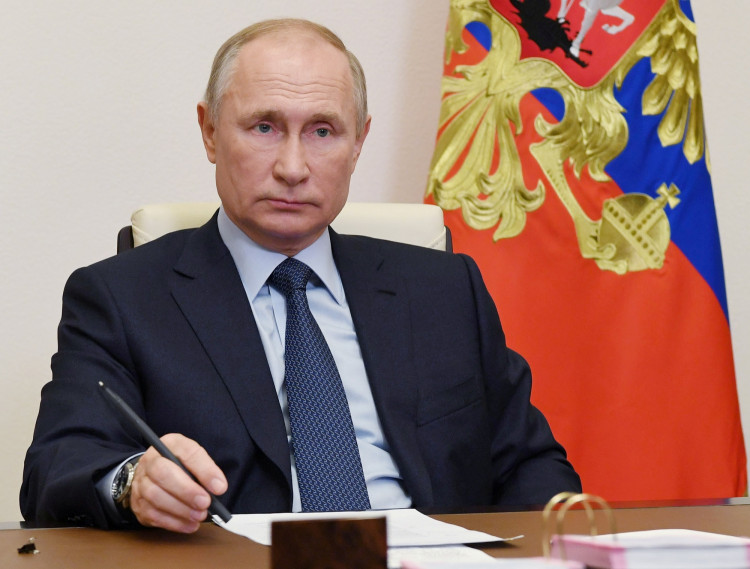President Donald Trump's threat to impose "very severe" 100% tariffs on Russia and secondary sanctions on its oil trading partners if no Ukraine peace deal is reached within 50 days drew a cool response from the Kremlin and muted concern from Russian markets, where investors interpreted the comments as more bark than bite.
"The U.S. president's statements are very serious," Kremlin spokesman Dmitry Peskov told reporters Tuesday, but added Moscow "needs time to analyze what was said in Washington." He warned, however, that decisions coming from Washington and NATO capitals were "perceived by the Ukrainian side not as a signal for peace but as a signal to continue the war."
Trump, seated alongside NATO Secretary General Mark Rutte at the White House on Monday, outlined a two-pronged approach: additional arms to Ukraine and tariffs on Russia and its energy buyers. "We're going to be doing very severe tariffs if we don't have a deal in 50 days, tariffs at about 100%," Trump said, calling out China, India, and Brazil for continuing to purchase Russian oil and gas.
In response, former Russian President Dmitry Medvedev labeled the warning a "theatrical ultimatum," while senior Russian diplomat Sergei Ryabkov said issuing ultimatums to Moscow was "unacceptable and pointless." Konstantin Kosachev, deputy chairman of the Federation Council, remarked that "in 50 days, how much can change both on the battlefield and in the mood of those in power both in the U.S. and in NATO?"
Despite the stern language, Russian markets appeared unfazed. The Moscow Stock Exchange rose 2.7% Tuesday morning, while global oil prices dipped more than $1, reflecting skepticism that Trump will immediately act on his threats. Leonid Slutsky, a prominent nationalist lawmaker, said Trump had deliberately avoided "immediate anti-Russian measures or the confiscation of illegally blocked Russian assets."
A White House official later clarified that Trump's proposed tariffs include direct measures on Russian goods and secondary sanctions on countries buying Russian exports. "We can do secondary," Trump said. "We're probably talking about 100 percent or something like that."
The economic threat coincides with bipartisan momentum in Congress. A bill co-sponsored by Senators Lindsey Graham (R., S.C.) and Richard Blumenthal (D., Conn.) would authorize 500% tariffs on any country that continues to support Russia's energy sector. "The ultimate hammer to bring about the end of this war will be tariffs against countries... that prop up Putin's war machine," the senators stated.
The diplomatic stakes extend far beyond Moscow. Liu Baocheng of Beijing's University of International Business and Economics warned that secondary tariffs could "severely backfire by undermining global economic stability and fragmenting international cooperation," particularly at a delicate point in U.S.-China trade relations.
India, which has been in talks with Washington to reduce tariffs below 20%, also voiced concern. External Affairs Minister S. Jaishankar confirmed his government is "in touch" with U.S. lawmakers regarding energy and security interests.






